
Beersheba: The Heart of the Negev Desert
Beersheba, often referred to as the 'Capital of the Negev', is a fascinating blend of ancient history and modern culture. Nestled deep in the southern part of Israel, this city is a gateway to the vast and awe-inspiring Negev Desert. With its rich archaeological sites, vibrant markets, and innovative architecture, Beersheba offers a unique and enriching experience for every traveler. History enthusiasts will be captivated by the remnants of ancient civilizations that once flourished in this region. From the well-preserved ruins of Tel Be'er Sheva, a UNESCO World Heritage Site, to the impressive Turkish railway station, the city's past is vividly brought to life. The Beersheba War Cemetery is another poignant reminder of the city's historical significance, commemorating those who fought in World War I. For those seeking modern delights, Beersheba does not disappoint. The city's bustling Bedouin market, held every Thursday, is a sensory delight, offering an array of spices, textiles, and handmade crafts. The Abraham's Well International Visitor Center provides a glimpse into the life of one of the most iconic biblical figures. Meanwhile, the city's high-tech park, known as Gav-Yam Negev, showcases Israel's innovative spirit. Nature lovers will find plenty to explore in the surrounding desert landscape. From the majestic craters of Makhtesh Ramon to the serene beauty of the Ein Avdat National Park, the natural wonders near Beersheba are nothing short of spectacular. Whether you're hiking the scenic trails or simply soaking in the vast, open skies, the Negev Desert promises an unforgettable adventure.
Local tips in Beersheba
- Visit the Bedouin market on a Thursday for a unique cultural experience.
- Wear comfortable shoes for exploring archaeological sites and desert trails.
- Make sure to bring plenty of water, especially during the hot summer months.
- Plan a visit to the Abraham's Well International Visitor Center for a deeper understanding of the city's biblical significance.
- Check the opening hours of the Tel Be'er Sheva archaeological site as they vary seasonally.
Beersheba: The Heart of the Negev Desert
Beersheba, often referred to as the 'Capital of the Negev', is a fascinating blend of ancient history and modern culture. Nestled deep in the southern part of Israel, this city is a gateway to the vast and awe-inspiring Negev Desert. With its rich archaeological sites, vibrant markets, and innovative architecture, Beersheba offers a unique and enriching experience for every traveler. History enthusiasts will be captivated by the remnants of ancient civilizations that once flourished in this region. From the well-preserved ruins of Tel Be'er Sheva, a UNESCO World Heritage Site, to the impressive Turkish railway station, the city's past is vividly brought to life. The Beersheba War Cemetery is another poignant reminder of the city's historical significance, commemorating those who fought in World War I. For those seeking modern delights, Beersheba does not disappoint. The city's bustling Bedouin market, held every Thursday, is a sensory delight, offering an array of spices, textiles, and handmade crafts. The Abraham's Well International Visitor Center provides a glimpse into the life of one of the most iconic biblical figures. Meanwhile, the city's high-tech park, known as Gav-Yam Negev, showcases Israel's innovative spirit. Nature lovers will find plenty to explore in the surrounding desert landscape. From the majestic craters of Makhtesh Ramon to the serene beauty of the Ein Avdat National Park, the natural wonders near Beersheba are nothing short of spectacular. Whether you're hiking the scenic trails or simply soaking in the vast, open skies, the Negev Desert promises an unforgettable adventure.
When is the best time to go to Beersheba?
Iconic landmarks you can’t miss
פארק הילדים של באר שבע
Discover the tranquility of Be'er Sheva's City Park, an urban oasis with breathtaking landscapes and vibrant cultural activities for all ages.
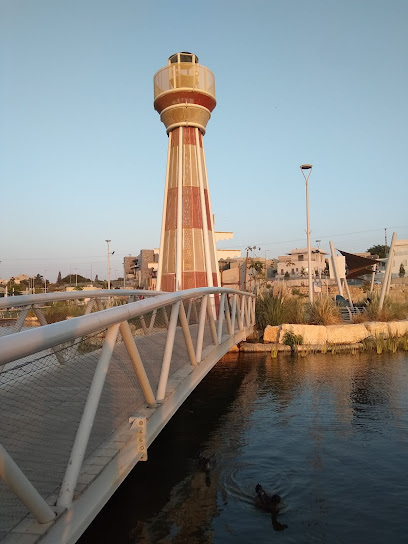
Carasso Science Park
Explore the interactive exhibits and beautiful outdoor spaces at Carasso Science Park, a premier science museum in Be'er Sheva, Israel.
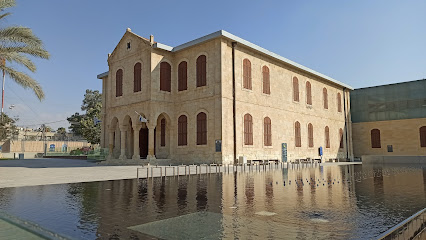
Lunada - לונדע
Explore Lunada in Be'er Sheva, a captivating children's museum filled with interactive exhibits that spark creativity and curiosity in young minds.
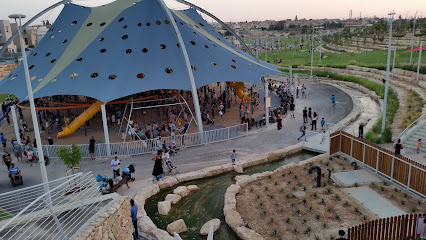
Negev Zoo
Discover the Negev Zoo in Be'er Sheva, a unique wildlife park offering diverse animal exhibits and enriching educational experiences for all ages.
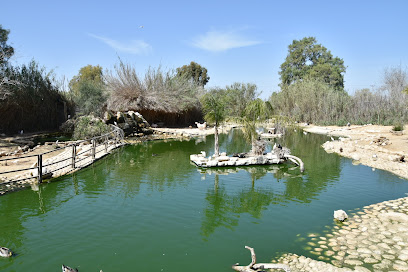
Turkish Railway Station
Explore the Turkish Railway Station in Be'er Sheva, a cultural center blending history and modern leisure with beautiful architecture and vibrant local life.
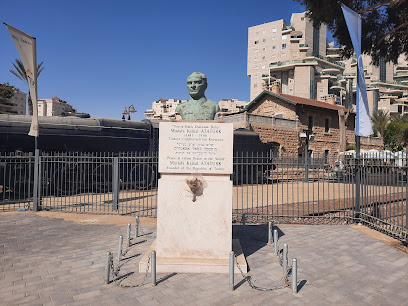
Hummus Said Beer Sheva
Discover the authentic taste of Middle Eastern cuisine at Hummus Said in Beer Sheva, where delicious hummus and warm hospitality await.
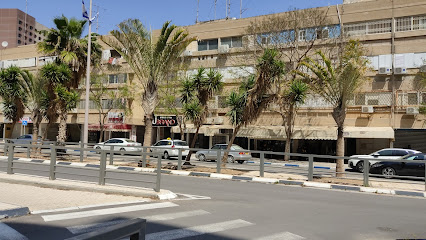
העיר העתיקה באר שבע
Explore Ha-Palmakh Street in Be'er Sheva for a vibrant mix of culture, shopping, and delicious local cuisine, all steeped in rich history.
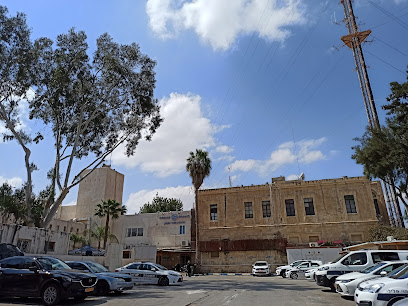
Tel Be’er Sheba
Explore the rich history and natural beauty of Tel Be'er Sheba, an ancient national park that brings the past to life in stunning landscapes.
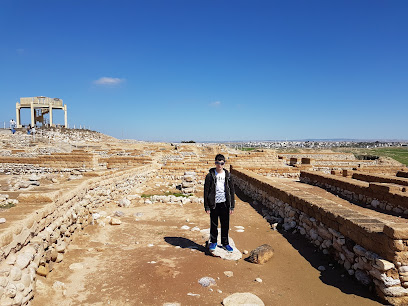
Monument to the Negev Brigade
Explore the Monument to the Negev Brigade in Be'er Sheva, a powerful symbol of bravery and sacrifice in Israel's history.
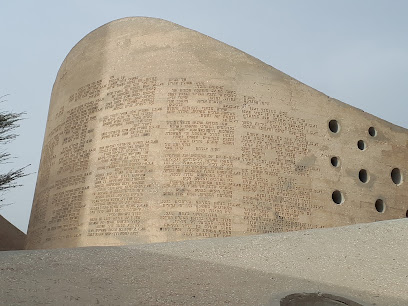
River Park Beer Sheva
Explore River Park Beer Sheva: A serene national park perfect for outdoor activities, family fun, and relaxation in the heart of Be'er Sheva.
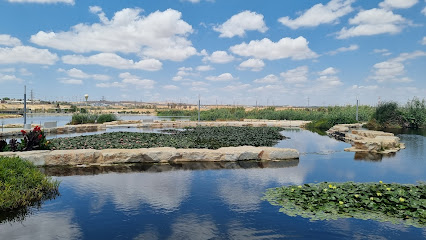
Abraham's Well
Explore the fascinating history and culture of Be'er Sheva at Abraham's Well, a unique visitor center steeped in biblical significance.
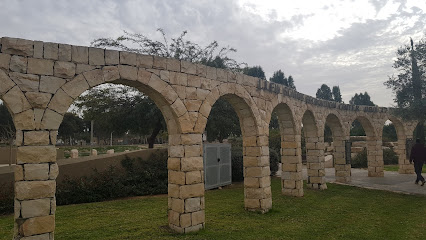
Escape Room Beer Sheva
Experience thrilling adventures and brain-teasing challenges at Escape Room Beer Sheva, perfect for friends and family seeking unforgettable fun.
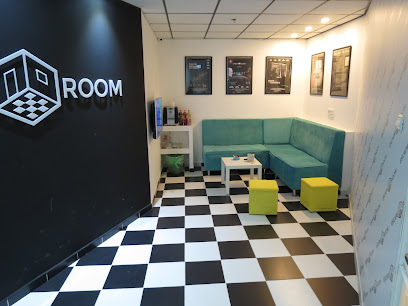
The Be’er Sheva Anzac Memorial Centre
Discover the poignant history of the Anzac troops at the Be'er Sheva Anzac Memorial Centre, a captivating museum in Israel.
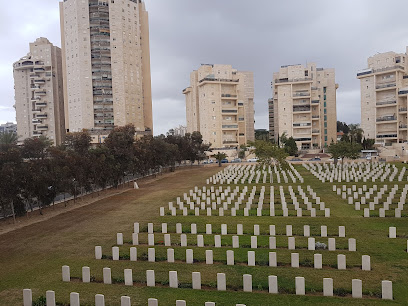
Beersheba River
Explore the serene beauty of Beersheba River, a seasonal river in Israel, perfect for nature lovers and outdoor adventurers seeking tranquility.
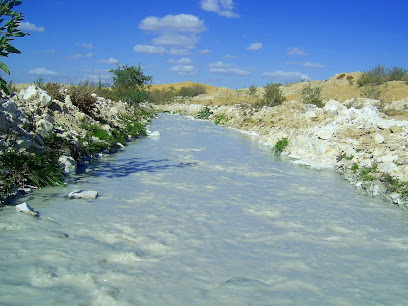
The Negev Museum of Art
Experience the vibrant world of contemporary art at the Negev Museum of Art in Be'er Sheva, a must-visit cultural gem amidst stunning gardens.
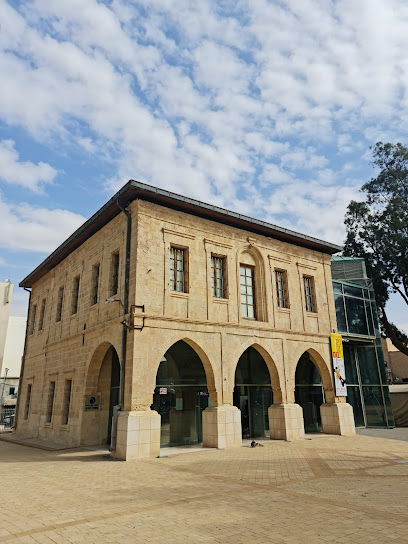
Unmissable attractions to see
Ein Avdat National Park
Discover the stunning landscapes and ancient history of Ein Avdat National Park, a must-visit destination for nature lovers and history enthusiasts alike.
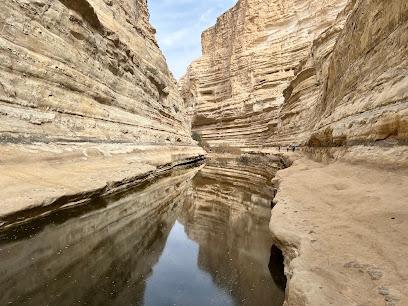
פארק הילדים של באר שבע
Discover the beauty of Be'er Sheva's City Park, a green oasis filled with playgrounds, a serene lake, and vibrant community activities in the heart of the city.
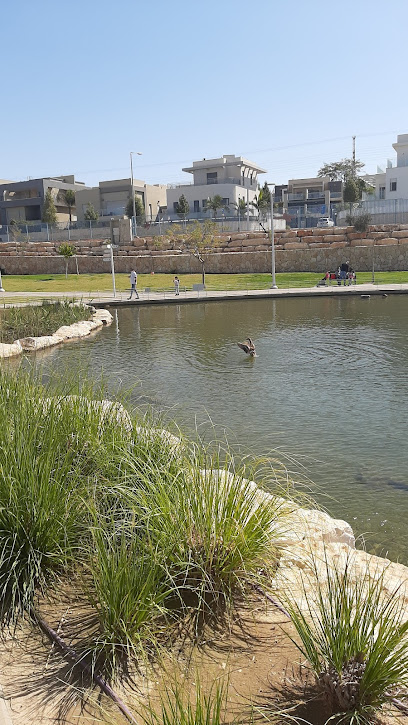
Beit Guvrin-Maresha National Park
Discover the rich history and stunning natural beauty of Beit Guvrin-Maresha National Park, a must-visit destination for adventure and exploration.
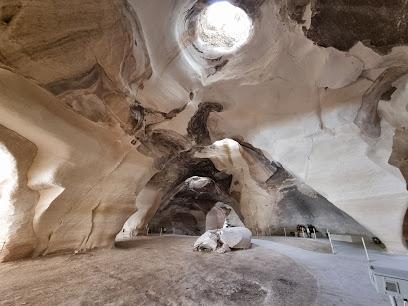
Carasso Science Park
Discover the excitement of science at Carasso Science Park, where learning meets adventure in Be'er Sheva's premier family-friendly destination.
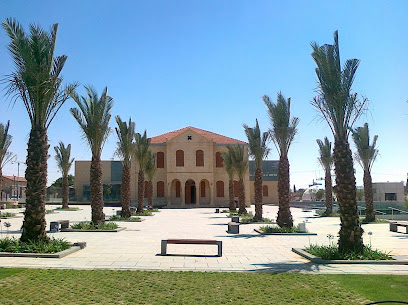
Lunada - לונדע
Discover the wonders of learning and play at Lunada, a delightful children's museum in Be'er Sheva, perfect for families and young explorers.
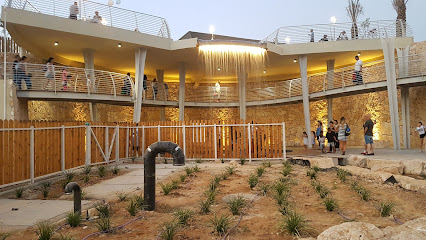
Negev Zoo
Explore Negev Zoo in Be'er Sheva, a wildlife park brimming with diverse species and engaging activities for families and animal lovers.
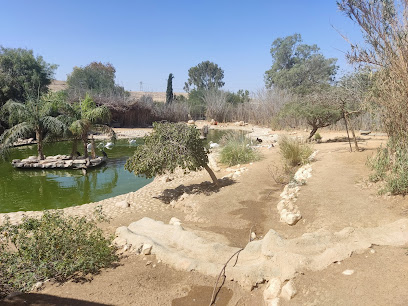
צריף בן-גוריון
Explore Sde Boker, the historical village of David Ben-Gurion, surrounded by stunning desert landscapes and rich cultural heritage.
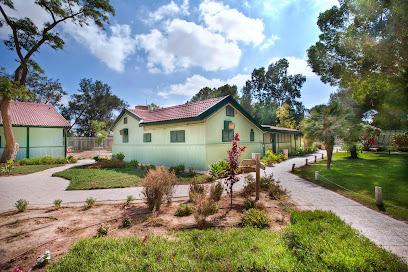
Ibrahimi Mosque
Discover the Ibrahimi Mosque: A historical gem in Hebron, bridging cultures and faiths with its stunning architecture and rich heritage.
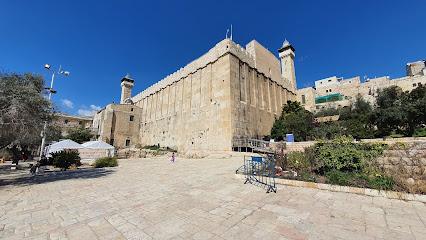
Australian Soldier Park
Explore the serene beauty of Australian Soldier Park in Be'er Sheva, a heartfelt tribute to ANZAC valor amidst lush landscapes and historical significance.
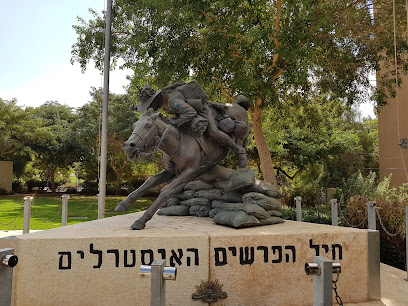
Writers' Park
Discover Writers' Park in Be'er Sheva, a tranquil escape blending nature with art and inspiration for creativity seekers and nature lovers.
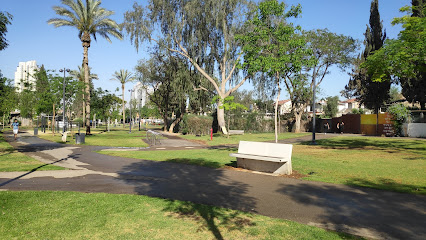
Turkish Railway Station
Explore the Turkish Railway Station in Be'er Sheva, a cultural hub that combines rich history with modern coffee delights and community events.
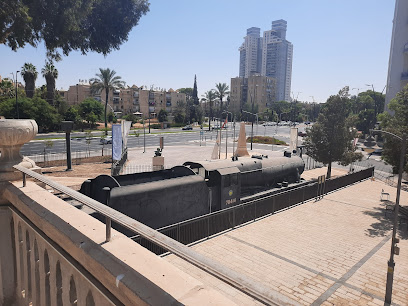
העיר העתיקה באר שבע
Experience the vibrant culture and rich history at Ha-Palmakh Street, Be'er Sheva's premier tourist attraction for exploration and enjoyment.
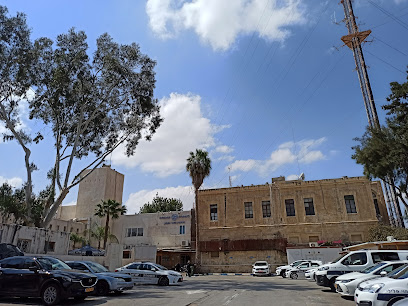
Tel Be’er Sheba
Uncover the ancient wonders of Tel Be'er Sheva, a UNESCO World Heritage Site showcasing the rich history and stunning landscapes of Israel's national parks.
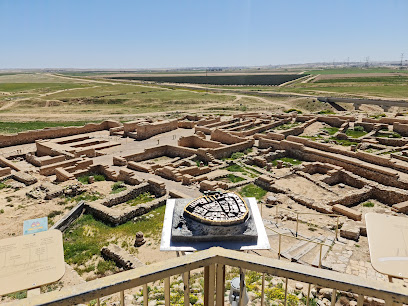
Park Marmalade
Discover the tranquility of Park Marmalade in Be'er Sheva, a beautiful urban park perfect for relaxation, recreation, and cultural experiences.
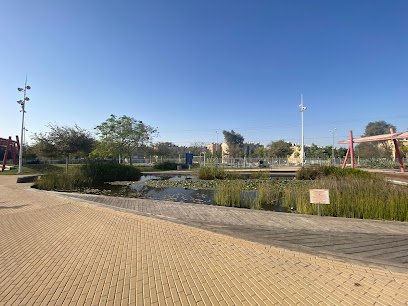
Monument to the Negev Brigade
Explore the Monument to the Negev Brigade, a powerful tribute to Israel's history and a serene spot for reflection in Be'er Sheva.
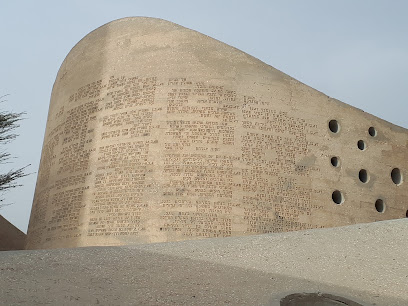
Essential places to dine
Nafis
Discover authentic Israeli cuisine at Nafis - a culinary gem in Be'er Sheva offering delicious dishes and a warm atmosphere.
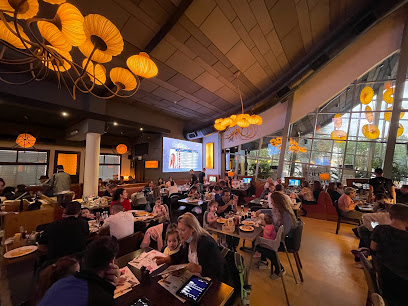
Golden Goose Restaurant
Experience top-tier dining at Golden Goose Restaurant in Be'er Sheva - where every bite is crafted with care and passion.
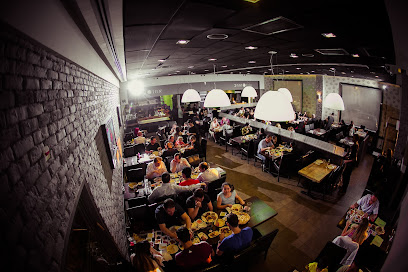
Kepasa
Experience authentic Mediterranean flavors at Kepasa in Be'er Sheva – where every dish tells a story of tradition and taste.
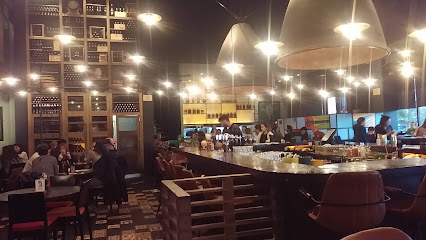
Sifriya
Experience the vibrant flavors of Sifriya in Be'er Sheva – where culinary tradition meets modern dining.
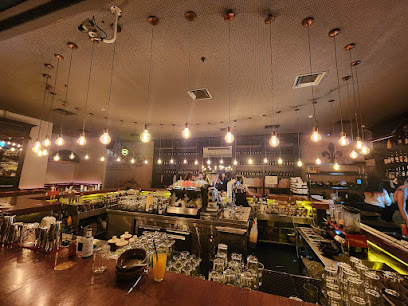
Kampai - קמפאי
Discover authentic Asian cuisine at Kampai in Be'er Sheva - where every dish is a delightful journey through flavors.
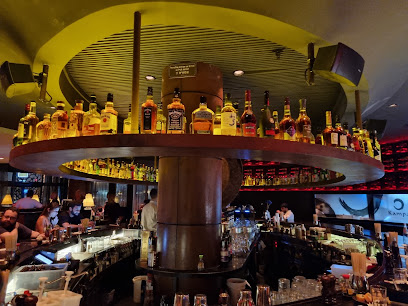
Cramim Restaurant
Experience authentic Israeli cuisine at Cramim Restaurant in Be'er Sheva - where every meal is a celebration of flavor and tradition.
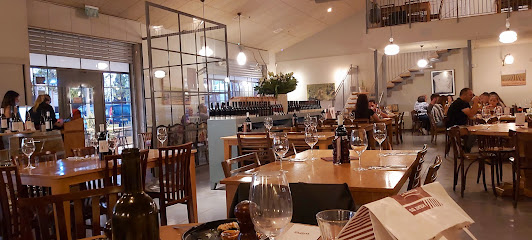
VIVINO
Experience authentic Italian cuisine at VIVINO in Be'er Sheva - where flavor meets tradition in every bite.
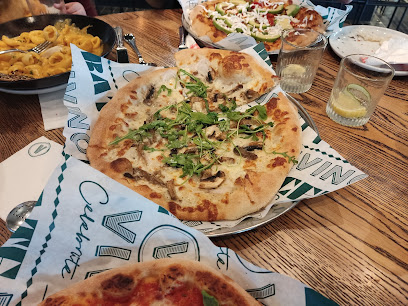
הדרומית - מסעדת בשרים כשרה
Savor authentic kosher steakhouse cuisine at הדרומית in Be'er Sheva – where every bite tells a story of tradition and flavor.
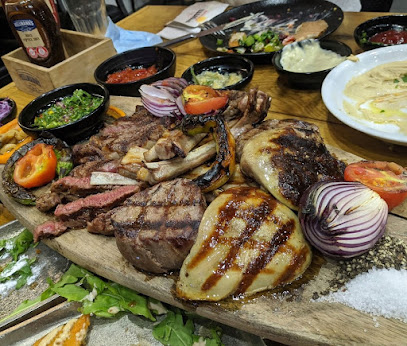
Lola Cafe
Discover the flavors of Be'er Sheva at Lola Cafe - where culinary creativity meets warm hospitality.
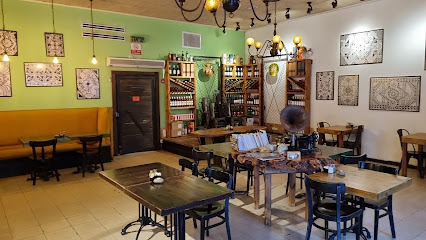
Little India - הודו הקטנה
Experience authentic Indian cuisine at Little India in Be'er Sheva - where every dish tells a story.
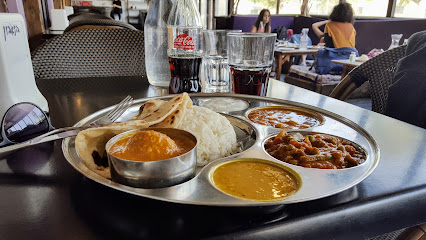
Kabab Emuna
Discover Kabab Emuna in Be'er Sheva: A top-rated chophouse serving authentic Israeli cuisine with rich flavors in a warm atmosphere.
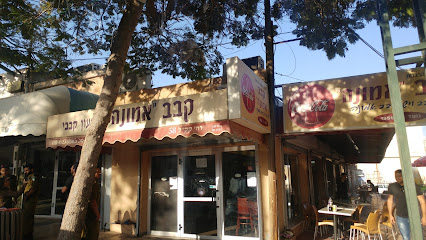
Saba Jebeto
Discover Saba Jebeto in Be'er Sheva – where fresh sandwiches meet expertly brewed coffee in a cozy atmosphere.
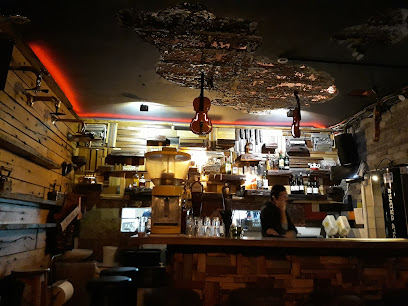
Hummus Said Beer Sheva
Discover the authentic taste of Israel at Hummus Said Beer Sheva – a must-visit destination for hummus lovers seeking affordable gourmet delights.
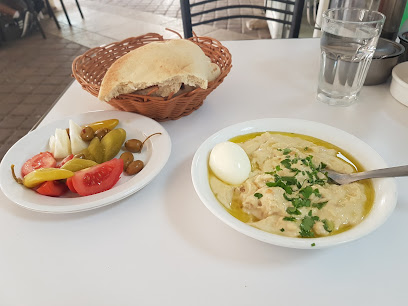
BarBaSaba Beer Garden
Discover BarBaSaba Beer Garden in Be'er Sheva: A vibrant vegan dining experience featuring innovative dishes and a lively outdoor atmosphere.
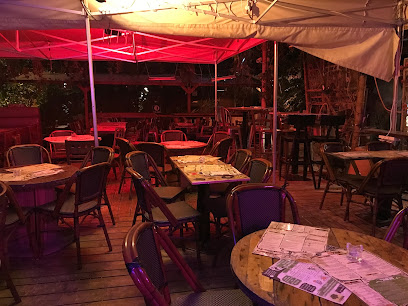
Yakuta
Experience the rich flavors and vibrant culture of Morocco at Yakuta in Be'er Sheva - where every meal is a celebration.
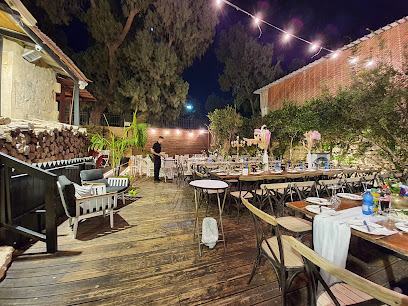
Markets, malls and hidden boutiques
עופר גראנד קניון באר שבע
Discover the best shopping, dining, and entertainment at עופר גראנד קניון באר שבע, a vibrant mall in Be'er Sheva with something for everyone.
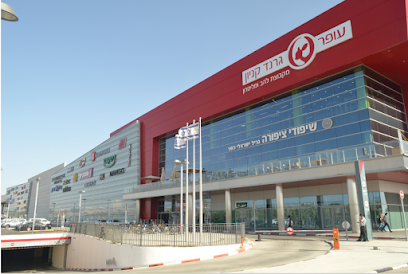
Big Beer Sheva
Discover Big Beer Sheva, a vibrant shopping mall in Be'er Sheva, offering a diverse array of shops, dining, and entertainment for every tourist.
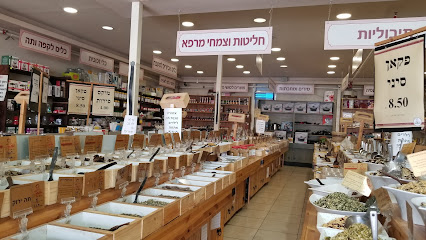
Azrieli Negev Mall
Explore Azrieli Negev Mall in Be'er Sheva for shopping, dining, and entertainment, embodying the vibrant local culture in a modern setting.
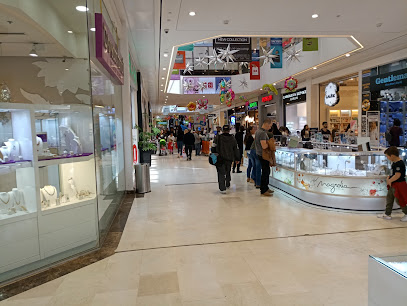
Mall 7 shopping Center
Discover a shopper's paradise at Mall 7 Shopping Center in Be'er Sheva; a blend of shopping, dining, and family fun awaits.
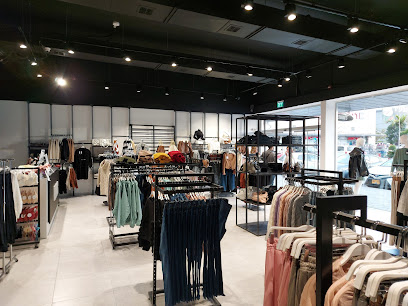
ספידוג I מרבד הקסמים באר שבע
Explore Speedog in Be'er Sheva for top-notch pet supplies and grooming services in a welcoming atmosphere.
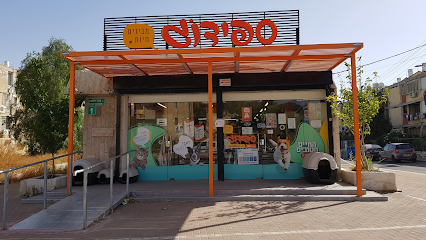
Urbanica
Discover Urbanica, Be'er Sheva's clothing store, where fashion meets diversity in the vibrant Negev Mall.
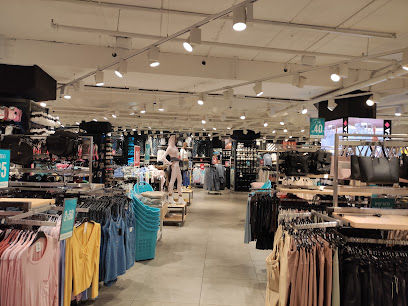
Nike Beer Sheva
Explore Nike Beer Sheva for the latest in sportswear and gear, where fitness meets style in the heart of Be'er Sheva's Grand Mall.
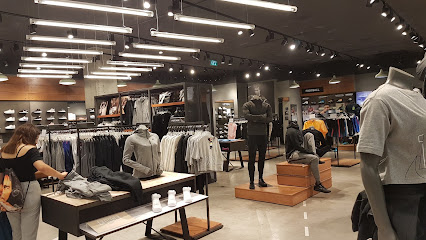
Big Shop
Shop at Big Shop in Be'er Sheva for a diverse selection of clothing, toys, and essential items in a vibrant department store experience.
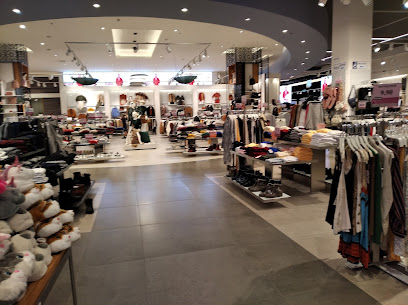
Mishkan Hatchelet Industries Ltd.
Explore Mishkan Hatchelet Industries Ltd. for a unique blend of religious goods and traditional cotton craftsmanship in Be'er Sheva.
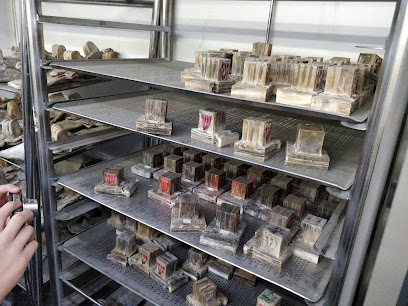
Purchases and entertainment center color
Explore Be'er Sheva's premier shopping mall, where shopping, dining, and entertainment meet in a vibrant atmosphere.
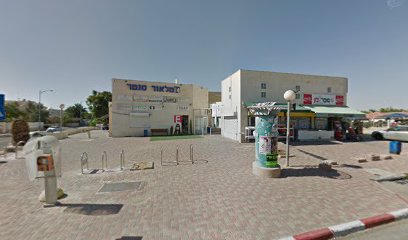
פרי הדמיון - סלסלות ומשלוחי פירות
Explore the vibrant flavors and unique gift baskets at פרי הדמיון, Be'er Sheva's premier novelty store for fresh fruits and delightful gifts.
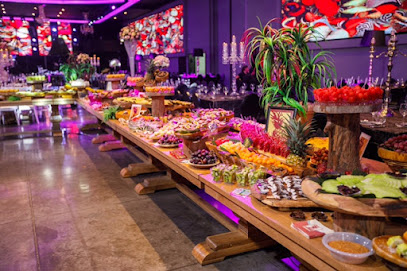
Tamnoon
Discover unique Israeli fashion at Tamnoon, a stylish clothing store in Be'er Sheva offering a diverse collection for all styles.
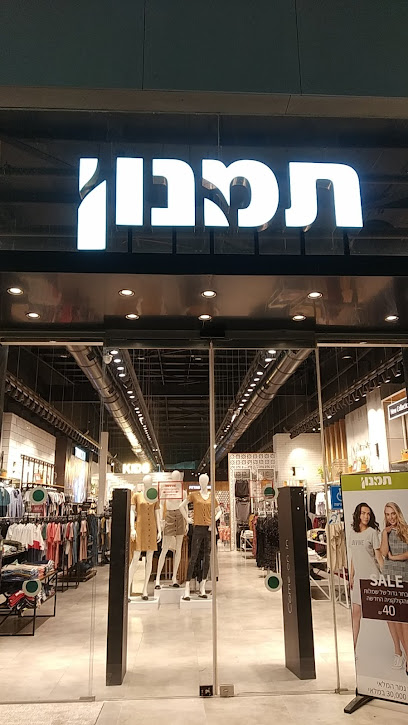
Tu tienda latina en Be'er Sheva
Experience authentic Mexican flavors at Tu Tienda Latina in Be'er Sheva, a grocery store offering a wide array of traditional ingredients and spices.
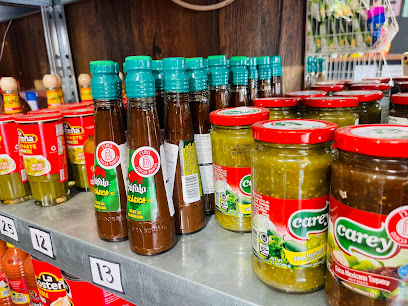
American Eagle Store
Explore the ultimate shopping experience at American Eagle Store in Be'er Sheva, featuring trendy clothing for men and women at moderate prices.
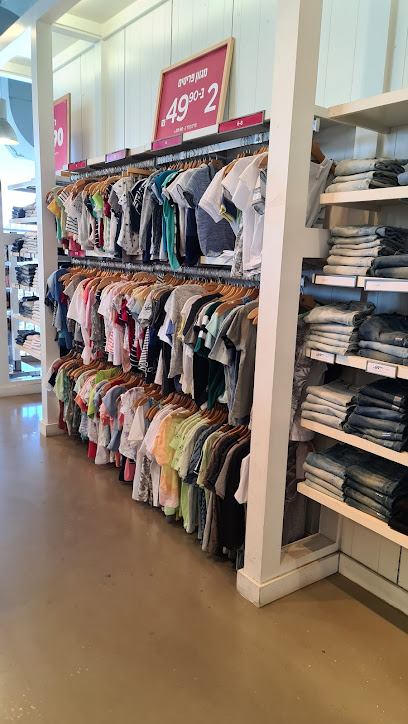
ספייס בוקס - פתרונות אחסון למטבח
Explore Spice Box, the ultimate destination for kitchen supplies, innovative cooking solutions, and culinary inspiration in a stylish shopping atmosphere.

Essential bars & hidden hideouts
BarBaSaba Beer Garden
Experience the unique vegan flavors and lively atmosphere at BarBaSaba Beer Garden, Be'er Sheva's top destination for food and fun.
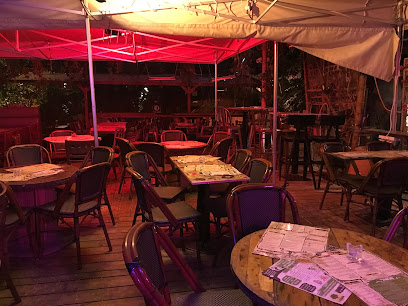
ג'מס באר שבע JEM'S BEER FACTORY
Discover craft brews, delicious meals, and live music at JEM'S Beer Factory in Be'er Sheva, a must-visit for every traveler.
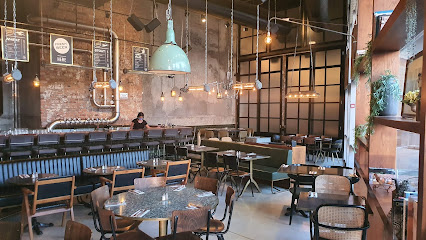
Zalame ACB
Experience the vibrant cocktail culture at Zalame ACB, Be'er Sheva's premier bar for unique drinks and an unforgettable night out.
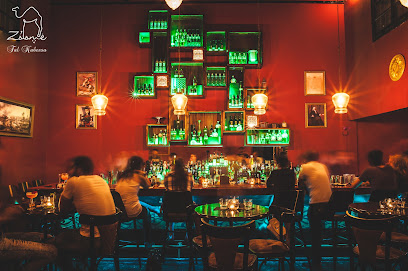
Bar Giora
Experience the vibrant nightlife of Be'er Sheva at Bar Giora, where great food and an extensive beer selection await you.
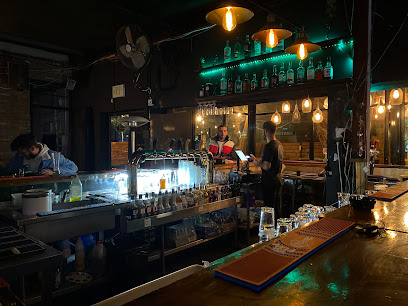
Ashan Hazman
Discover Ashan Hazman in Be'er Sheva: a vibrant pub with live music and a cozy used book store, perfect for an unforgettable night out.
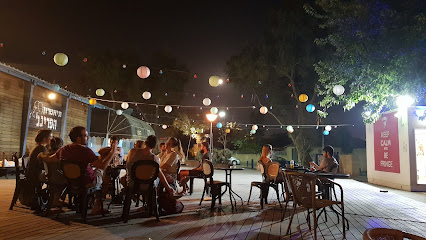
Bialik 26
Discover the charming Bialik 26 in Be'er Sheva, where coffee, vegetarian cuisine, and a pub atmosphere create a delightful dining experience.
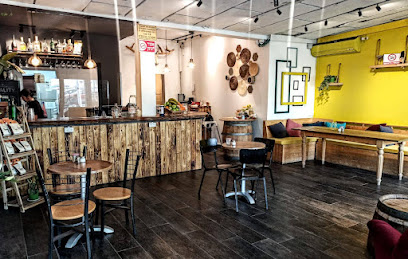
בנג׳י - bengi
Discover the vibrant nightlife of Be'er Sheva at Bengi Pub, where great drinks and lively events await you!
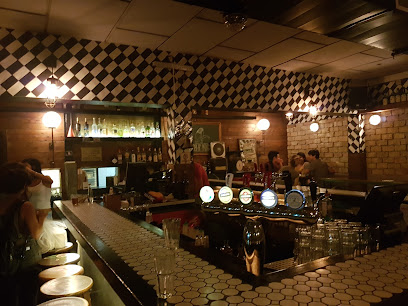
Beer Station
Unwind at Beer Station, the heart of Be'er Sheva's nightlife, where great beer meets a friendly atmosphere in an inviting pub setting.
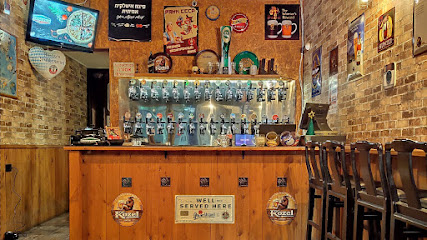
Roots Bar & Kitchen
Discover Roots Bar & Kitchen in Be'er Sheva – a vibrant bar offering delicious food, a lively atmosphere, and great prices for tourists.
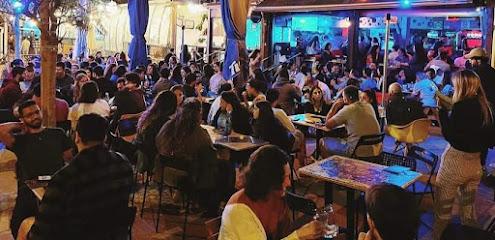
Rosa Bar
Experience the vibrant nightlife of Be'er Sheva at Rosa Bar, where inventive drinks and a lively atmosphere await you.
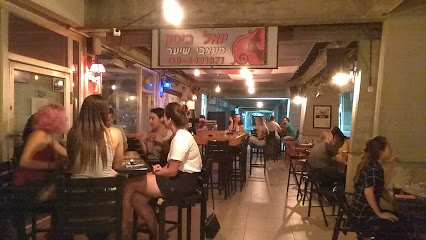
בר שכונתי קטן (פרלה)
Experience the cozy atmosphere and vibrant social scene at Bar Shekhunati Katan (Perla), a beloved local bar in Be'er Sheva.
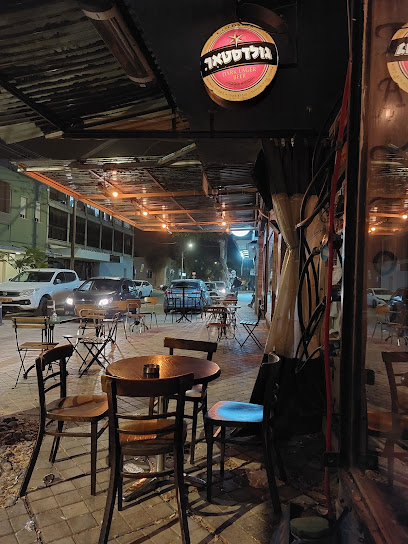
Pub Giza
Discover the lively ambiance and affordable drinks at Pub Giza, a must-visit bar in the heart of Be'er Sheva's nightlife.
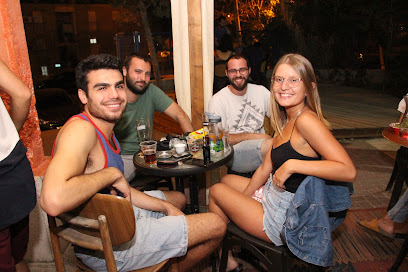
Atika
Discover the lively atmosphere of Atika in Be'er Sheva, a bar where friends gather over drinks and create unforgettable memories.
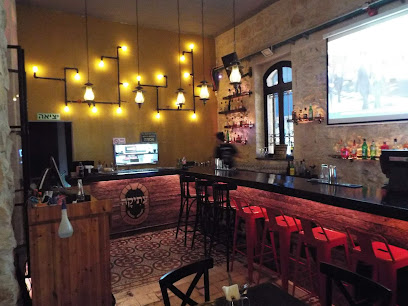
Pola Bar
Discover the vibrant nightlife of Be'er Sheva at Pola Bar, a cozy bar featuring a diverse drink menu and a welcoming atmosphere.
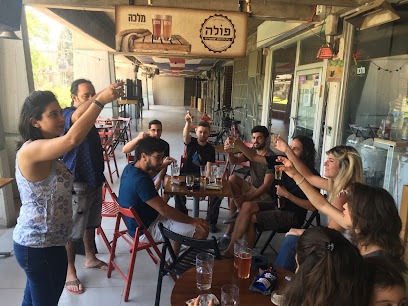
Local Phrases
-
- Helloשָׁלוֹם
[Shalom] - Goodbyeלְהִתְרָאוֹת
[Lehitraot] - Yesכֵּן
[Ken] - Noלֹא
[Lo] - Please/You're welcomeבבקשה
[Bevakasha] - Thank youתודה
[Toda] - Excuse me/Sorryסְלִיחָה
[Slicha] - How are you?אֵיך אַתָה?
[Eich Ata?] - Fine. And you?טוֹב. וְאַתְה?
[Tov. Ve'ata?] - Do you speak English?האם אתה מדבר אנגלית?
[Ha'Im Ata Medaber Anglit?] - I don't understandאני לא מבין
[Ani Lo Mevin]
- Helloשָׁלוֹם
-
- I'd like to see the menu, pleaseאני רוצה לראות את התפריט, בבקשה
[Ani Rotze La'rot Et Ha'Ta'amit, Bevakasha] - I don't eat meatאני לא אוכל בשר
[Ani Lo Ochel Basar] - Cheers!לחיים!
[Lechayim!] - I would like to pay, pleaseאני רוצה לשלם, בבקשה
[Ani Rotze Leshalem, Bevakasha]
- I'd like to see the menu, pleaseאני רוצה לראות את התפריט, בבקשה
-
- Help!עזרה!
[Ezrah!] - Go away!לך לעבור!
[Lech Le'avor!] - Call the Police!תקרא למשטרה!
[Tkara Le'Mishtara!] - Call a doctor!תקרא לרופא!
[Tkara Le'Rofe!] - I'm lostאני אבוד
[Ani Avud] - I'm illאני חולה
[Ani Choleh]
- Help!עזרה!
-
- I'd like to buy...אני רוצה לקנות...
[Ani Rotze Liknot...] - I'm just lookingאני רק מסתכל
[Ani Rak Mistakel] - How much is it?כמה זה עולה?
[Kama Ze Ole?] - That's too expensiveזה יקר מדי
[Ze Yakar M'odi] - Can you lower the price?אפשר להוריד את המחיר?
[Efshar Lehored Et Ha'Machir?]
- I'd like to buy...אני רוצה לקנות...
-
- What time is it?מה השעה?
[Ma Ha'Sha'a?] - It's one o'clockזה אחת בבוקר
[Ze Achat Ba'Boker] - Half past (10)חצי (עשר)
[Chatzi (Eser)] - Morningבוקר
[Boker] - Afternoonצהריים
[Tzohorayim] - Eveningערב
[Erev] - Yesterdayאתמול
[Etmol] - Todayהיום
[Hayom] - Tomorrowמחר
[Mahar] - 1אחד
[Echad] - 2שניים
[Shnayim] - 3שלשה
[Shalosh] - 4ארבעה
[Arba'a] - 5חמישה
[Chamisha] - 6שישה
[Shisha] - 7שבעה
[Shiv'a] - 8שמונה
[Shmoneh] - 9תשעה
[Tish'a] - 10עשרה
[Eser]
- What time is it?מה השעה?
-
- Where's a/the...?איפה נמצא/ת ה...
[Eifo Nimtza/Nimtza'a Ha...] - What's the address?מה הכתובת?
[Ma Ha'Ktovet?] - Can you show me (on the map)?אתה יכול להראות לי (על המפה)?
[Ata Yachol Lehariot Li (Al Ha'Mapa)?] - When's the next (bus)?מתי האוטובוס הבא?
[Matai Ha'Autobus Ha'Ba?] - A ticket (to ....)כרטיס (ל...)
[Kartis (Le...)]
- Where's a/the...?איפה נמצא/ת ה...
History of Beersheba
-
Beersheba, known as 'Be'er Sheva' in Hebrew, has roots that trace back to ancient times. It is mentioned in the Bible as the place where Abraham, Isaac, and Jacob lived. Abraham's well, a landmark in the city, is linked to the covenant between Abraham and Abimelech, marking Beersheba as a site of significant Biblical heritage.
-
During the First Century BCE and well into the Roman period, Beersheba was a crucial settlement for the Nabateans. They established trade routes across the Negev Desert, and Beersheba served as a key junction on the Incense Route, facilitating the trade of spices and other goods between Petra and the ports of Gaza.
-
In the Byzantine period, Beersheba evolved into a more structured urban center. Archaeological discoveries, including churches, public buildings, and intricate mosaics, highlight its importance during this era. The city served as a hub for Christian pilgrimage, linking various holy sites across the region.
-
The Ottoman Empire recognized Beersheba's strategic importance in the late 19th century. They established a more permanent settlement, building administrative and military structures. The construction of the railway in the early 20th century further promoted economic and social development, laying the groundwork for modern Beersheba.
-
A pivotal moment in Beersheba's history occurred on October 31, 1917, during World War I. The Battle of Beersheba saw the Australian Light Horse Brigade execute a dramatic cavalry charge, leading to the capture of the city from Ottoman forces. This victory was instrumental in the British campaign to secure Palestine.
-
Following the establishment of the State of Israel in 1948, Beersheba became a focal point for development in the Negev Desert. The city absorbed a significant influx of Jewish immigrants, transforming it into a vibrant urban center. Infrastructure development and the founding of Ben-Gurion University in 1969 have solidified its role as an educational and technological hub.
-
Modern Beersheba is a thriving metropolis that blends historical heritage with contemporary culture. It hosts a variety of cultural festivals, high-tech industries, and educational institutions. The city's unique architecture, including Ottoman-era buildings and modern skyscrapers, reflects its dynamic history and ongoing growth.
Beersheba Essentials
-
Beersheba is located in the southern part of Israel. The nearest international airport is Ben Gurion Airport in Tel Aviv, approximately 100 kilometers away. From Tel Aviv, you can take a direct train to Beersheba, which takes around 1.5 hours. Alternatively, you can take a bus from Tel Aviv Central Bus Station. Car rentals are also available at the airport for those who prefer to drive.
-
Beersheba has a well-connected public transportation system, including buses and trains. The city is serviced by the Israel Railways network, making it easy to travel to and from other major cities. Local buses operated by the Metropoline and Dan companies cover most areas of the city. Taxis are also readily available, and ride-sharing services like Gett operate in Beersheba. For those who prefer to drive, car rental services are available.
-
The official currency in Israel is the Israeli Shekel (ILS). Credit cards are widely accepted in hotels, restaurants, and shops. ATMs are plentiful throughout Beersheba, allowing for easy cash withdrawals. It is advisable to carry some cash for small purchases or in case you visit places that do not accept cards.
-
Beersheba is generally a safe city for tourists. However, like any urban area, it is wise to take standard precautions. Avoid walking alone at night in unfamiliar areas and keep an eye on your belongings in crowded places. The Old City area can be less safe after dark, so it is best to visit during the daytime. Always stay vigilant and aware of your surroundings.
-
In case of emergency, dial 100 for police assistance, 101 for medical emergencies, and 102 for fire services. The Soroka Medical Center is the largest hospital in Beersheba and provides comprehensive medical services. Pharmacies are available throughout the city for minor health issues. It is recommended to have travel insurance that covers medical emergencies.
-
Fashion: Do dress modestly, especially when visiting religious sites. Avoid wearing revealing clothing. Religion: Do respect local customs and traditions. Always cover your head when entering synagogues. Public Transport: Do be respectful and give up your seat to elderly passengers. Don't eat or drink on public transport. Greetings: Do greet people with a handshake. A slight nod of the head is also a sign of respect. Eating & Drinking: Do try local delicacies and accept food offerings graciously. Don't refuse hospitality, as it is considered impolite.
-
To experience Beersheba like a local, visit the local markets, especially the Bedouin market, which offers a unique shopping experience. Engage with locals, as they are often friendly and willing to share stories about the city's history and culture. Don't miss visiting the Negev Museum of Art and the Abraham's Well International Visitor Center. For a unique experience, explore the nearby Negev Desert and enjoy activities such as camel riding and stargazing.
Trending Landmark in Beersheba
-
פארק הילדים של באר שבע
-
Carasso Science Park
-
Lunada - לונדע
-
Negev Zoo
-
Turkish Railway Station
-
Hummus Said Beer Sheva
-
העיר העתיקה באר שבע
-
Tel Be’er Sheba
-
Monument to the Negev Brigade
-
River Park Beer Sheva
-
Abraham's Well
-
Escape Room Beer Sheva
-
The Be’er Sheva Anzac Memorial Centre
-
Beersheba River
-
The Negev Museum of Art
Nearby Cities to Beersheba
-
Things To Do in Masada
-
Things To Do in Ein Gedi
-
Things To Do in Ashdod
-
Things To Do in Bethlehem
-
Things To Do in Jerusalem
-
Things To Do in Dead Sea
-
Things To Do in Modi'in
-
Things To Do in Holon
-
Things To Do in Kerak
-
Things To Do in Jaffa
-
Things To Do in Ramat Gan
-
Things To Do in Tafilah
-
Things To Do in Tel Aviv
-
Things To Do in Hod Hasharon
-
Things To Do in Herzliya












